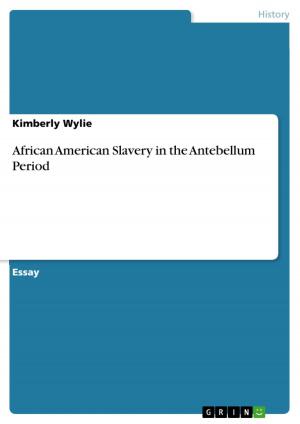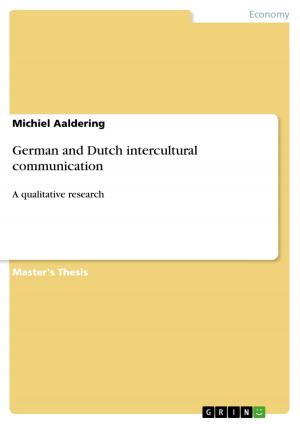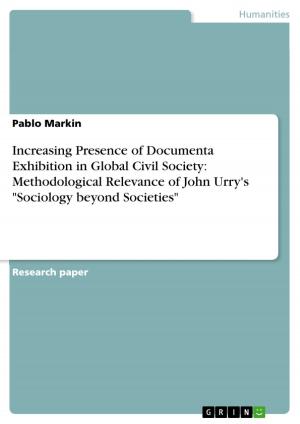New Opportunities, Old Limitations: Raisa Golant and the Russian Jewish Experience after 1917
Nonfiction, Religion & Spirituality, Judaism| Author: | Pavel Vasilyev | ISBN: | 9783640665389 |
| Publisher: | GRIN Publishing | Publication: | July 20, 2010 |
| Imprint: | GRIN Publishing | Language: | English |
| Author: | Pavel Vasilyev |
| ISBN: | 9783640665389 |
| Publisher: | GRIN Publishing |
| Publication: | July 20, 2010 |
| Imprint: | GRIN Publishing |
| Language: | English |
Research Paper (undergraduate) from the year 2009 in the subject Jewish Studies, grade: A-, Central European University Budapest, course: Jewish Studies, language: English, abstract: The struggle for Jewish emancipation in Russia was a lengthy and difficult process, which was also accompanied by the trends towards gradual modernization, secularization, industrialization and urbanization. In 1917, these processes finally led to the quick transformation of authoritarian monarchy to liberal democracy and then to socialist republic. Many previously oppressed social groups (among them Jews) were legally and socially emancipated in this turbulent period. In Soviet historiography Jewish emancipation in Russia was considered complete and unequivocal, but Western scholars had more freedom to notice 'the ambiguities of liberation' and the contradiction between 'anti-Semitism as an official policy' and 'one of the hallowed tenets of Marxist socialism which recognized neither Jew, Moslem, nor Christian but only classes and class interests'. In recent decades, the situation in Russia changed, and some historians (the most notable among them is Gennadii V. Kostyrchenko) also began to reconsider traditional Soviet perspectives on Jewish emancipation. Nevertheless, all these studies largely focus on a relatively limited number of topics, that pertain rather to the realms of 'high' politics, persecutions and state antisemitism. Few studies, however, look at the developments at the micro-level and at the everyday life experience of the Russian Jews after the emancipation. The situation is different with research on Central Europe, where several scholars managed to link Jewish history and the ambiguities of emancipation with such rapidly developing fields as gender studies or history of medicine. Accordingly, in this paper I use the case-study approach and analyze various materials documenting the life of Soviet Jewish psychiatrist Raisa Iakovlevna Golant (1885-1953) in order to show how professional and personal experience of Russian Jews after 1917 was structured both by positive accomplishments of the emancipation and the preserved limitations. Such a study also contributes to the developments in biographical history, women's and gender history, and history of medicine. To accomplish the above-mentioned goal, I focus on two major tasks: to contextualize my research by describing how other authors assessed the Russian Jewish experience after emancipation; and to explore the life of Raisa Golant with particular attention towards opportunities and limitations that structured her career after 1917.
PhD (Kandidat Nauk), Russian History, St. Petersburg Institute of History of the Russian Academy of Sciences, 2013 MA, Central European History and Jewish Studies, Central European University (Budapest, Hungary), 2010 (with distinction) BA (Specialist Degree), History, St. Petersburg State University, Russia, 2009
Research Paper (undergraduate) from the year 2009 in the subject Jewish Studies, grade: A-, Central European University Budapest, course: Jewish Studies, language: English, abstract: The struggle for Jewish emancipation in Russia was a lengthy and difficult process, which was also accompanied by the trends towards gradual modernization, secularization, industrialization and urbanization. In 1917, these processes finally led to the quick transformation of authoritarian monarchy to liberal democracy and then to socialist republic. Many previously oppressed social groups (among them Jews) were legally and socially emancipated in this turbulent period. In Soviet historiography Jewish emancipation in Russia was considered complete and unequivocal, but Western scholars had more freedom to notice 'the ambiguities of liberation' and the contradiction between 'anti-Semitism as an official policy' and 'one of the hallowed tenets of Marxist socialism which recognized neither Jew, Moslem, nor Christian but only classes and class interests'. In recent decades, the situation in Russia changed, and some historians (the most notable among them is Gennadii V. Kostyrchenko) also began to reconsider traditional Soviet perspectives on Jewish emancipation. Nevertheless, all these studies largely focus on a relatively limited number of topics, that pertain rather to the realms of 'high' politics, persecutions and state antisemitism. Few studies, however, look at the developments at the micro-level and at the everyday life experience of the Russian Jews after the emancipation. The situation is different with research on Central Europe, where several scholars managed to link Jewish history and the ambiguities of emancipation with such rapidly developing fields as gender studies or history of medicine. Accordingly, in this paper I use the case-study approach and analyze various materials documenting the life of Soviet Jewish psychiatrist Raisa Iakovlevna Golant (1885-1953) in order to show how professional and personal experience of Russian Jews after 1917 was structured both by positive accomplishments of the emancipation and the preserved limitations. Such a study also contributes to the developments in biographical history, women's and gender history, and history of medicine. To accomplish the above-mentioned goal, I focus on two major tasks: to contextualize my research by describing how other authors assessed the Russian Jewish experience after emancipation; and to explore the life of Raisa Golant with particular attention towards opportunities and limitations that structured her career after 1917.
PhD (Kandidat Nauk), Russian History, St. Petersburg Institute of History of the Russian Academy of Sciences, 2013 MA, Central European History and Jewish Studies, Central European University (Budapest, Hungary), 2010 (with distinction) BA (Specialist Degree), History, St. Petersburg State University, Russia, 2009















